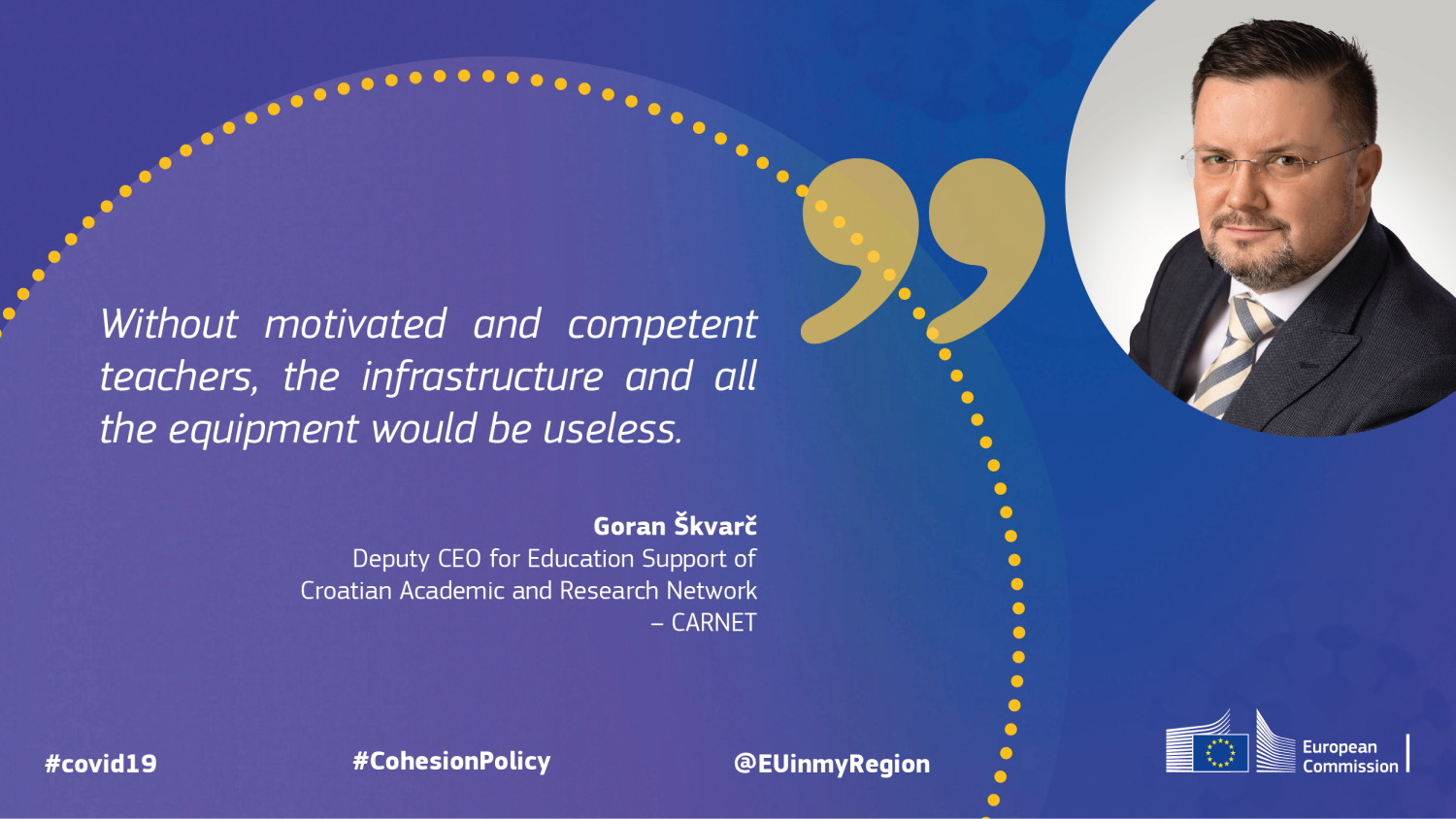E-Schools: success beyond the project life cycle
- 27 May 2021

Running from September 2018 to December 2022, the second phase of the project will put in place ICT infrastructure and develop educational content and e-sevices for Croatia’s primary and secondary public schools to improve teaching, learning and administration, and provide the necessary training and support. The aim is to equip teachers and students with the IT skills that will enable them to better compete in the global 21st century market place and to contribute to Croatia’s economic development. The project will cover 1 321 primary and secondary schools.
The project received further visibility in February 2021 during an online event organised by the European Commission. Several interesting points were raised on that occasion, in particular the issue of sustainability once the project has ended.
We recently contacted Goran Škvarč, Deputy CEO for Education Support of Croatian Academic and Research Network - CARNET to find out more about the work.
As a public institution operating in the field of ICT usage in education, CARNET’s main goal is to develop a technologically advanced society in Croatia. Therefore, one of the most important segments when planning and implementing the e-Schools project was to ensure its sustainability. With this in mind, the crucial part and focus of the e-Schools programme is on support and training for the teachers and school staff, as well as providing suitable digital educational resources and other e-content and e-services to ensure continuity of education and purposeful use of technology even after the project has been completed.
Additionally, we invested in raising the level of awareness among school founders and schools about the need to provide adequate support for maintaining the ICT infrastructure in schools after 2022. For us, this project was all about the impact, not the finances.
Managing a project with this range of activities and values requires the active involvement and cooperation of all the project stakeholders. Therefore, the support of cities, counties, ministries and religious communities as school founders is extremely important.
CARNET and school founders signed contracts obliging founders to support e-Schools’ long-term goals, including the founders’ responsibility in appointing and funding a technical support expert who provides technical support for network usage and other equipment obtained in the project, both during and after its completion.
CARNET has a good reputation of putting its users in the focus, which helped a lot. Teachers are in the focus of our e-Schools project because only digitally competent teachers will be able to use and further explore the equipment, e-content and e-services and prepare students for the 21st-century labour market, further education and lifelong learning. From the beginning of the e-Schools project, they have been involved in its implementation through various segments. For instance, we established a community of practice with the goal of connecting the school employees, which resulted in sharing positive experiences and examples of good practice in the use of ICT in education through activities in the virtual environment and various face-to-face events. One such event is our annual CARNET users conference – a place for the exchange of knowledge and experience along with the development of cooperation between participants. Additionally, we provide continuous support in the form of a help desk or on-site professional and consulting assistance in schools from our mobile expert teams. Without motivated and competent teachers, the infrastructure and all the equipment would be useless. So, we are immensely proud that the teachers in this project are very motivated and even the most experienced and most competent among them know there is always room for improving the quality of teaching through the use of ICT.
While a sound ICT infrastructure is very important for distance and e-learning, teachers are key to make it a lasting success. Due to the COVID-19 pandemic, they had to show their proficiency in the new infrastructure and methods much earlier than expected – so far, with very positive results.
At the same time, it is now important to move forward and make sure these initial success stories are repeated in the future. As Ivana Mažar Marušić points out, the project is still in its infancy and its success will depend on the efforts and motivation of all those involved.


